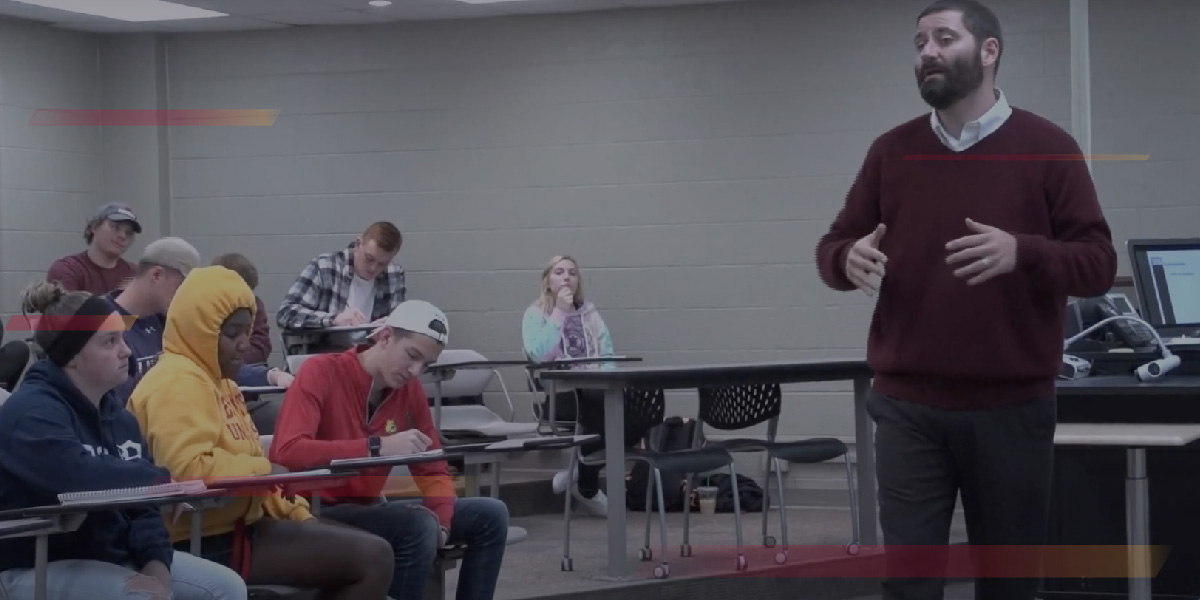(231) 591-2735
[email protected]
820 Campus Drive, ASC 2108
Big Rapids MI 49307
Options: Bachelor's
Locations: Main Campus
Why We Do What We Do
Most simply, psychology is the scientific study of the mind (i.e., mental processes) and behavior. Topics of investigation include learning principles, personality traits, social influence, thought, intelligence, perceptual processes, counseling approaches, emotional development, consciousness, and much more.
Your Next Step
Meet an Expert
Our expert faculty members are here to answer all the questions you have about earning your degree in Psychology at Ferris. Schedule a one-on-one appointment now.
Psychology is a fascinating area of study because the subject matter involves the human experience. However, an understanding of psychology offers more than answering questions you may have about yourself and others. Very early in psychology's history, it defined itself as not only a science, but an applied science in which the ultimate aim is the "real-world" application of scientific knowledge gained from conducting research.
Today, psychology can be found in a variety of places including counseling, marketing, human resources, leadership, education, engineering, health issues, law, and community studies. In many cases, these areas would not exist without psychology. For example, something as simple as the button layout on a copy machine involves an understanding of human thought and perceptual abilities—assuming it was designed correctly! Students from all of these disciplines (and others) often choose to minor in psychology.
What Will I Study?
The Ferris State University Psychology program requires that students be exposed to a broad range of topics, including basic principles of psychology and the major theories and concepts. As a result, students are expected to take courses representing core areas of psychology, including the areas mentioned previously. Outside of these requirements, students are free to take courses that are of special interest to them. Thus, students have a great deal of freedom when determining what psychology courses to take and can tailor their program experiences to suit interests and career aspirations.
Forensic Psychology
Forensic Psychology is psychology in the service of the courts. Adult criminal courts are interested in the state of an accused person’s mind at the instant of the crime, competence to stand trial, and dangerousness. Juvenile delinquency courts examine criminal behavior of juveniles with a focus on whether rehabilitation or transfer to adult court is best. Juvenile dependency courts address the needs of children who cannot remain with their parents due to neglect or abuse. Forensic consultations to the court in these matters are common. To serve these kinds of cases requires specialize training at the Master’s or Doctoral levels. Typically, the graduate training is in Clinical Psychology.
At the Master’s and Doctoral levels, there are also forensic psychologists specializing in court consultations of non-criminal matters such as custody cases, mental competency to change a will, disability determination cases, and so on.
Nursing, criminal justice, pre-law, pre-medicine, and applied forensic biology majors may find that it is relevant to their future professional practice.
An undergraduate foundation in Forensic Psychology will help psychology majors get entry level jobs at the Bachelor’s level in positions like Children’s Protective Services, Delinquency Diversion Programs, and Juvenile Detention Facilities.
Why Choose Psychology?
The Psychology program requires that students obtain hands-on exposure to psychology by engaging in research, internships, and/or practicum. For example, students have completed research in the areas of social, developmental and cognitive psychology.
Recently, faculty and students have attended and presented research at conferences such as the annual conventions of the Michigan Undergraduate Psychology Research Conference, Association for Psychological Science (APS), the Midwestern Psychological Association (MPA), and at the National Association of School Psychologists. In addition, many students have obtained hands-on research experience in the program's Animal Cognition Lab.
Students have also acquired on-site experiences in settings where human services professionals work (e.g., school psychology, counseling). Such experiences are important for those wishing to obtain graduate study in applied areas or finding work helping others right out of college.
What are Graduates of Psychology Doing Now?
Both the hands-on and course-related requirements are designed to prepare students for graduate school and ready them for careers as researchers, educators, clinicians, and more. The majority of students who have applied to graduate programs have been accepted to programs across the nation.



